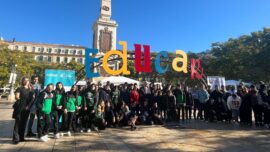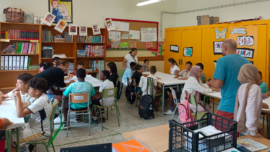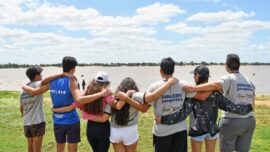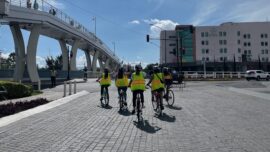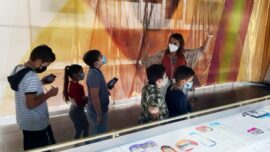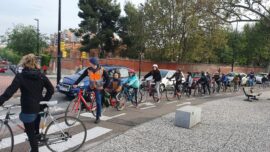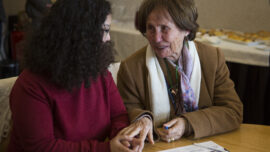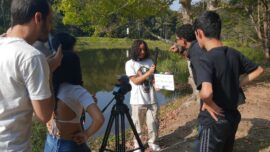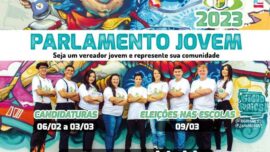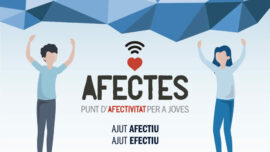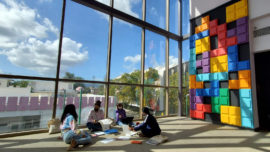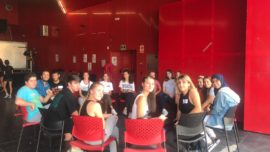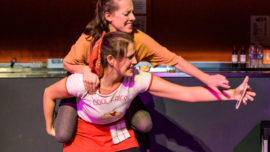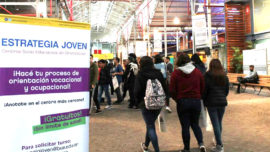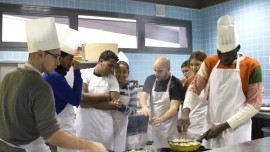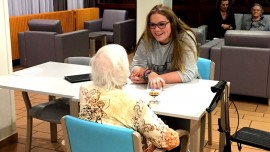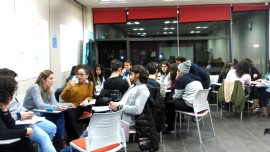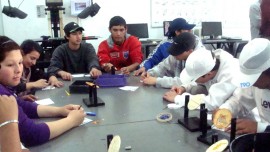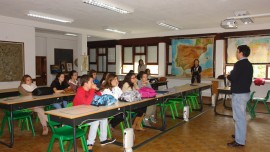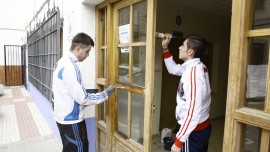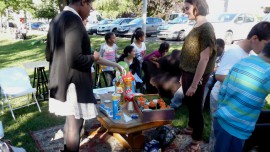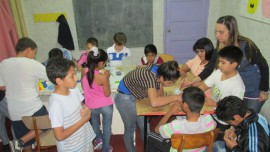Youth
We encourage cities to take up the challenge of developing and implementing innovative, comprehensive and crosscutting youth policies to provide the resources and services that this population segment needs in order to attain full citizenship.
Experiences - News
Municipal Vocational Training Office
Malaga's Strategic Plan 2023-2030 promotes Dual Vocational Training, connecting students, companies and institutions to improve employability, reduce school dropout rates and foster equality, entrepreneurship and local development. [...]
Referèxit
Referèxit addresses absenteeism and dropout by supporting the primary-secondary transition, detecting needs and vulnerabilities, and raising educational expectations through community support, family guidance, and positive role models of academic success. [...]
Youth Activities Coordinators
The project consists of organising groups of adolescents and young people from 13 to 25 years of age. It seeks to be a reference in the formation of citizens who play, reflect, propose and participate in an environment where they are valued and perceive themselves as agents of change. [...]
Cycling School with a Gender Perspective
The project was created with the aim of providing girls and women of all ages in León with tools that foster their autonomy and allow them to take ownership of public spaces. It also aims to promote the use of the bicycle as a clean, efficient and healthy means of transport. [...]
Intercultural mediation at school with Roma communities
The project aims to help include Roma children and youth and allow them to succeed academically, as well as to promote an inclusive, safe, participatory and non-discriminatory environment in schools, based on recognizing cultural diversity, human dignity, equity and a culture of peace. [...]
STARS Project: sustainable, active and independent mobility
STARS is a sustainable, active and independent mobility project in Europe intended for primary and secondary school students, which involves the entire educational community and focuses on the use of bicycles as a regular means of transport. [...]
The Aconchego Programme: sharing a home and company
The programme is aimed at young university students, who are hosted by senior citizens living in the city. The senior citizens provide accommodation, and the students repay them in kind with company, food and a token contribution towards cover housekeeping. [...]
Water, Camera and Action – socio-environmental educommunication
The project aims to generate conditions for young people between 15 and 29 years old to experience socio-environmental learning about water problems in the city, according to their perceptions while at the same time valuing the specificities of each territory. [...]
Bullying prevention protocol
The protocol aims to improve the action circuits and bolster networking, and it is also a proposal for educational innovation, which starts from the basis that all the agents in the municipality are educational, both those linked to formal education as well as non-formal or informal education. [...]
Fighting ageism through art and literacy
Two initiatives from the Vitoria-Gasteiz City Council combine intergenerational meetings, between the elderly and young people, with artistic creation; and between the elderly and boys and girls, with literacy. [...]
Youth Parliament of Palmeira
The programmme operates as a parallel parliament, though it does not have legal power, and it enables young people to have the opportunity to analyse the demands of their municipality in a broader manner, while also considering possible ways to alleviate or find solutions to the problems in society. [...]
‘Punt Afectes’: Promoting emotional and relational health within the youth population
This municipal service seeks to promote emotional health and the development of healthy relationships among youth population. Special emphasis is placed on breaking sexist, dependent or abusive relationship models, providing users with strategies to detect and replace them with alternative models. [...]
Codepillars Club: a space to encourage girls to study science and technology
The city of Caguas is promoting the Codepillars Club project with the aim of encouraging girls to take an interest in professions related to science, technology, engineering and design. [...]
Participatory processes and co-management of spaces for youth
The strategic management of youth facilities through a collective approach to empower youth associations and groups. [...]
Microtheatre
Dissemination and professionalisation project for new playwrights and young theatre performers. [...]
Youth Strategy
A free program that aims to improve the conditions of employment and educational inclusion of young people and also adults and thus facilitate their transition from the educational to the work world, through an individual guidance process that accompanies the participants. [...]
ASPA Program: socio-educational and pre-employment support for adolescents
An initiative whose purpose is the implementation of a set of preventive actions, in order to compensate for the personal, family and social deficits present in adolescents and young people who are in a situation of social risk. [...]
Civic Practicums
Students in secondary education participate actively in the social development of their city by carrying out humanitarian activities linked to very different environaments (social, health, preventive, education, culture, environment, maintenance and cleaning, etc.) in public or non-profit entities. [...]
Open until Down
A program for healthy and free-of-charge recreation activities for young people from 13 to 35. It is developed by and for this group, based on leisure-time education through sport and cultural activities that are socio-educational and take place on the weekends, especially at night. [...]
Socio-Educative Youth Inclusion Programme
A proposal addressed to young people from 13 to 18 years old, to foster the return to school and social inclusion of young people who have left the formal education system or who are in school but not attending regularly. [...]
We Propose!
A project that invites secondary school students of the subject of Geography to identify the problems in the area of land-use planning, encouraging them to develop possible solutions to improve the construction of local policies. [...]
Study-Work Program
Young people who abandoned the school have a new opportunity to finish the Compulsory Secondary Education, through the incentive of offering them a labor contract while learning a trade. [...]
KAPS
With the aim of fighting against inequalities, college students perform actions in the community in which they live in order to improve coexistence. In exchange they receive a room in a shared apartment, at an affordable price. [...]
You matter to me
Through this programme early teen mothers and fathers are provided with access and permanence to the formal educational system. [...]

